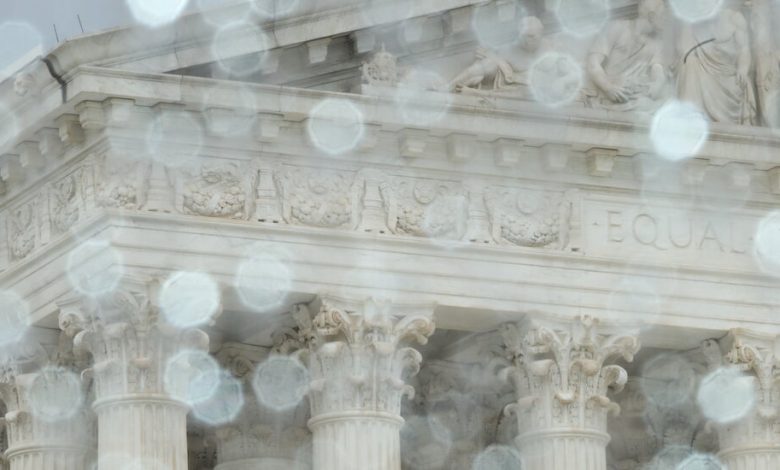The Supreme Court Should Let the States Decide Whether Trump Should Be on Their Ballots

The Supreme Court will hear arguments on Thursday about whether Colorado may keep Donald Trump off the presidential ballot because of the storming of the Capitol on Jan. 6, 2021. The justices should seek a ruling that is originalist, modest and respectful of America’s democratic federalism.
In particular, they should focus on two phrases: “the first insurrection of the 1860s” and “the fifty-state solution.”
The first phrase explains why Mr. Trump’s conduct squarely falls under Section 3 of the 14th Amendment, which bars from any “office, civil or military, under the United States” any important public servant who, after swearing an oath to the Constitution, engages in an “insurrection” or gives insurrectionists “aid or comfort.”
The second phrase highlights the Constitution’s well-established structure for presidential elections, blending democracy with federalism. A 50-state solution allows each state to use its own distinct procedures and protocols for applying Section 3.
Mr. Trump’s lawyers legitimately ask what counts as a disqualifying insurrection. Section 3, they note, was clearly aimed at oath-breakers who had backed insurrections akin to the Civil War. In that calamitous insurrection, more than half a million people died. The Jan. 6 Capitol riot, they argue, pales in comparison.
But Section 3’s authors actually had not one but two recent insurrections in mind. Before the bloody insurrection that began when cannons roared at Fort Sumter in April 1861, there was the first insurrection of the 1860s, led by cabinet members of outgoing President James Buchanan, including John B. Floyd, the war secretary, and Philip Francis Thomas, the treasury secretary, among many others. A shadowy network of affiliates and co-conspirators aimed in several and nefarious ways — including mayhem, military subversion and even murder, if need be — to prevent the lawful counting of President-elect Abraham Lincoln’s electoral votes and to thwart his lawful inauguration in early March 1861.
We are having trouble retrieving the article content.
Please enable JavaScript in your browser settings.
Thank you for your patience while we verify access. If you are in Reader mode please exit and log into your Times account, or subscribe for all of The Times.
Thank you for your patience while we verify access.
Already a subscriber? Log in.
Want all of The Times? Subscribe.
